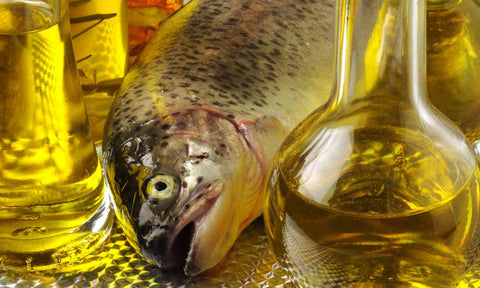Is our number one priority
Ways to Extend Your Dog's Life

According to a British study, nearly one-third of all dogs over the age of seven begin to change their behavior in the form of indications such as perplexity, restlessness, and general lack of enthusiasm in life. The symptoms intensify as the dog ages, and they affect a larger proportion of dogs in the older age groups. According to studies, the symptoms and anatomical changes in the dog's brain are comparable to dementia in people.
Fortunately, there are many things you can do on your own to lower the risk or lessen the symptoms in your elderly dog. Particularly, three items have emerged as crucial, and thankfully, they are accessible.
1) Ingredients in dog food that you should avoid
Although there is no proof that specific components prevent the onset of dementia in dogs, there is plenty of evidence that soy-containing feed should be avoided. Soy contains significant levels of manganese and aluminum, both of which have been linked to brain damage. Unfortunately, because soy is a cheap source of high protein content, it is found in a lot of dog food. And now that you're reading the ingredients list on your dog food, look for lecithin, vegetable protein, or vegetable broth, all of which contain soy.
2) Choose dog food with antioxidants, EPA and DHA
The two essential fatty acids that serve as brain food are EPA and DHA. Many fish-based oils, including salmon oil, will naturally have high quantities of EPA and DHA. It's also possible that your dog food already has a high concentration of EPA and DHA because it contains a lot of fish. According to studies, EPA and DHA can help slow down the aging process of the brain, and antioxidants should also be included in the diet. Among other things, berries and veggies include antioxidants.
3) Teach your dog new tricks!
It is beneficial to teach your dog new tricks or to engage it with a good demanding activation toy that requires it to think and utilize its senses. A study found that dogs who routinely exercise their brains and senses to accomplish problems stay intellectually sharper for longer.
A healthy dog meal containing antioxidants, EPA, DHA, and regular mental challenges has proven to be the most successful. Some of the results obtained by the researchers with dementia-affected dogs demonstrate that if the dog is fed the correct food while also being set to do tasks that might engage it mentally, it will accomplish the following results:
- More awake and active hours in the day
- Fewer "accidents," and a withdrawing attitude
- Generally better quality of life
Prevention is better than a cure
It is advisable to strive to prevent premature brain aging even though you can readily achieve good improvements with an already elderly and dementia-stricken dog. I advise you to offer a high-quality dog food that contains lots of antioxidants and vital fatty acids, regardless of the age of your dog. For instance, it might be Orijen or Acana.
Can you be certain that feeding your dog properly will prevent them from getting sick? Of course not, never. No feed supplement or feed can guarantee that your dog won't get sick, but in our opinion, making sure the dog gets the nourishment it needs is beneficial regardless.
However, keep in mind that throughout his life, your dog will need to pick up new skills. Simple new exercises will do; sophisticated techniques are not required. A nice activation toy like Nina Ottosson's Dog Treat Maze activity game is another option.